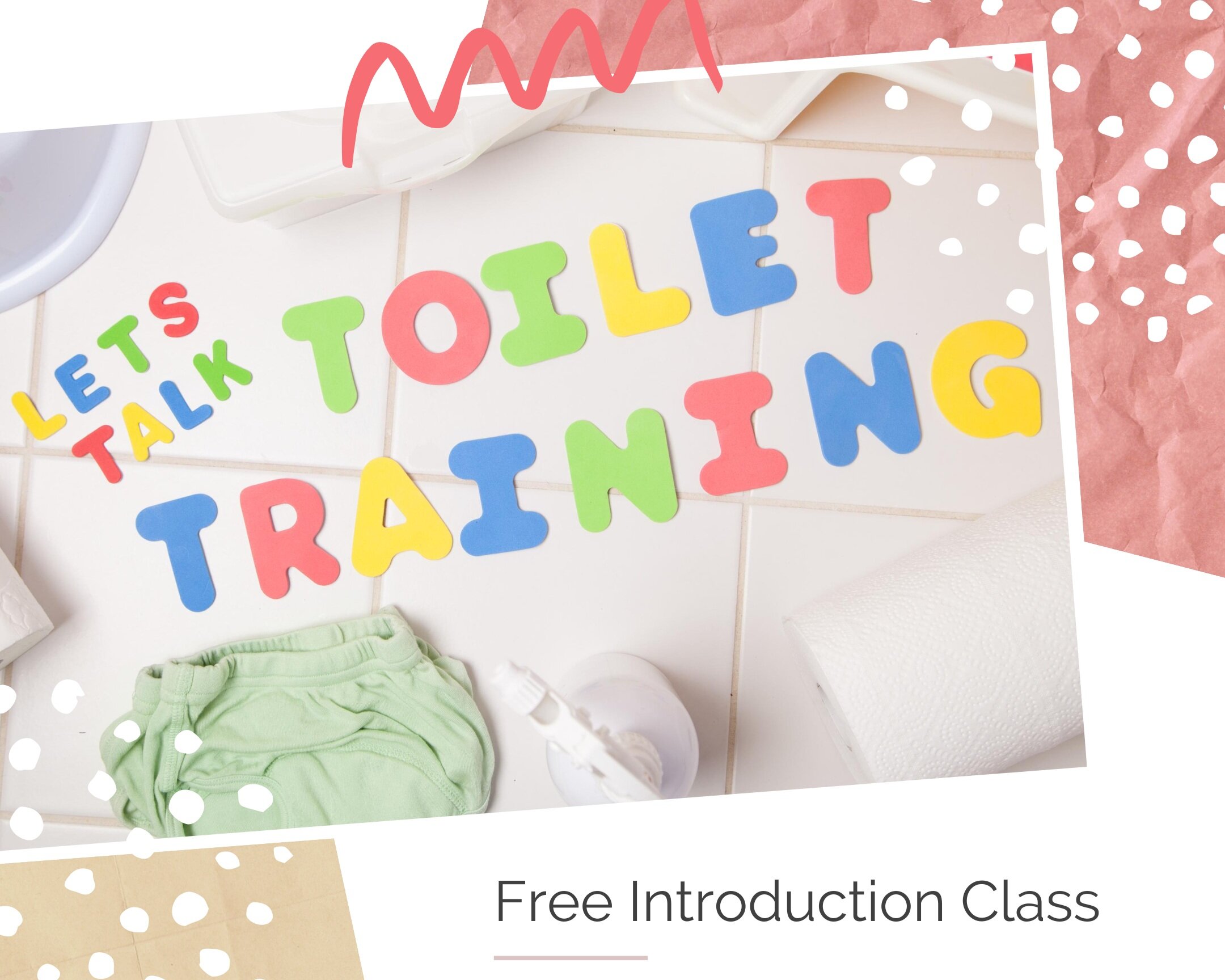Are children potty training later?
The average age of children coming out of nappies is now around 36 months, compared to 18 months in the 1950s, effectively doubling in 2 generations.
ERIC, The Children’s Bowel & Bladder Charity carried out a survey that showed that parents are toilet training their children later and that more children than ever before are starting school wearing nappies or pull-ups.
Children themselves are no different now than they were when our grandparents were born, so what has changed?
Click on Classes above to find out when the next 30-min free class will take place.
Disposable nappies & pull-ups
Disposable nappies are an amazing convenience and integral part of child-rearing, but they can make the potty training process harder and longer. Because they draw all the moisture away from the body & they're so absorbent, they've become the perfect portable toilet. However, a child needs to feel wet to help them make the connection via their senses of what happens when they wee.
Reusable nappies tend to help - cloth nappies are more absorbent than they used to be, but they don't completely take away the feeling of being wet. Plus it's an incentive for parents too.
(My favourite option is using the potty from birth - or Elimination Communication. See below for more info.)
Changes in parenting & family lifestyle
Nappy companies are the only ones who've truly benefited from pushing the child-led approach to toilet training and the resulting delay in potty training age. They've also been rather good at making parents worry that they could be doing harm to their child by taking nappies away too early, so families now wait too long for their child to take the initiative.
Parents today are more likely to feel they should wait until their child is "ready" - but we're not always sure exactly when this should be - because the concept of readiness is fairly new and based on empirical evidence, rather than medical or scientific advice.
A child-led approach worked well when children were wearing washable nappies, but it isn’t as effective with disposables because there isn’t the same motivation for children to want to stop wearing them.
Childcare
Children spend longer in child-care settings, often cared for by nursery workers or child-minders who don't have skills or experience with toilet training.
A survey conducted by ERIC in 2018 showed that 70% of early years staff had received no training in how to potty train and half of nurseries don't have a potty training policy in place.
Austerity & NHS cuts
Between 2015 - 2019 around one in five Health Visitors were lost, due to public health budget cuts and the failure to protect their preventative role by local authorities. Health visitors are no longer commissioned to help past 2 years of age, or to help with toileting, leaving families with less support and less access to help.
Loss of EC & parenting village
Elimination Communication or the practice of taking babies to the potty, was common in the UK until the 1950s, with midwifery manuals of the time showing parents how to hold the baby over the chamber pot at nappy changes.
In 80 years and less than 3 generations, we've sadly lost touch with this useful and respectful practice (thanks again, multi-national nappy companies!), meaning that now potty training is an intensive and sudden process, instead of a gradual achievement starting around 6 months (and finished by 18 months).
For those who practice or have considered starting with EC, the loss of the parenting village and the lack of support place the responsibility solely on the parents.
